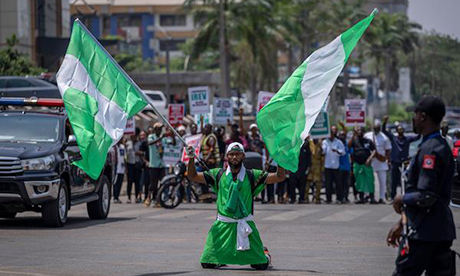The recent presidential election in Nigeria has been met with mixed reactions from both citizens and international observers, and Catholics have faced violence in several regions.
While some have hailed the election as a victory for democracy, others have criticised the process as flawed and marred by irregularities.
International observers reported logistical failings at polling booths and violence at the fringes of the process.
Joyce Banda, the head of the international delegation of observers and former President of Malawi, congratulated Nigerians on their “perseverance and enthusiasm” and “strong desire to make their voices heard”.
However, she noted that “logistical inadequacies created tensions” while “problems with electronically transmitting results and uploading them to a public portal in a timely manner undermined public confidence at a crucial moment”.
President-elect Bola Ahmed Tinubu has denied serious failings in the process, insisting that irregularities “were relatively few in number and were immaterial to the final outcome”.
He immediately formed a reconciliation committee with the opposition candidates, but a spokesman for the PDP refused “to rubber stamp the electoral fraud” while the Labour Party promised to challenge the result in court.
One of the key concerns that has emerged is the increasing control of Muslims in the country. Tinubu ran on an all-Muslim election ticket and the victory has alarmed Christians throughout the country.
Diocese staff evacuated
Dozens of people reportedly were murdered in post-election attacks on villages in Nigeria’s Benue State on Wednesday, according to a diocesan official.
In an exclusive interview with ACI Africa, Father Remigius Ihyula, the director of Justice and Peace Commission (JPC) of the Catholic Diocese of Makurdi, described the violence. He said that staff members at the diocese have been evacuated by the military.
“We keep wondering how ordinary herders can lay their hands on military gear. The only possible scenario is that they are getting help from the authorities,” the priest speculated. The vast majority of the Fulani tribes are Muslims, while the majority of victims are Christians.
The Muslim population in Nigeria has been growing steadily, and their increasing political influence has led to tensions with other religious groups, particularly Christians. The Catholic Church, which has a significant presence in Nigeria, has been among those most affected by the growing influence of Muslims in politics.
The Church has been vocal in its criticism of the government’s policies, calling for greater transparency and accountability in the electoral process. However, this has made the Church a target for violence and intimidation, with reports of attacks on Catholic churches and staff.
Despite these challenges, the Church has remained committed to advocating for the rights of all Nigerians and promoting social justice. It has called on the government to take action to ensure the safety of its staff and to investigate any incidents of violence or intimidation.
